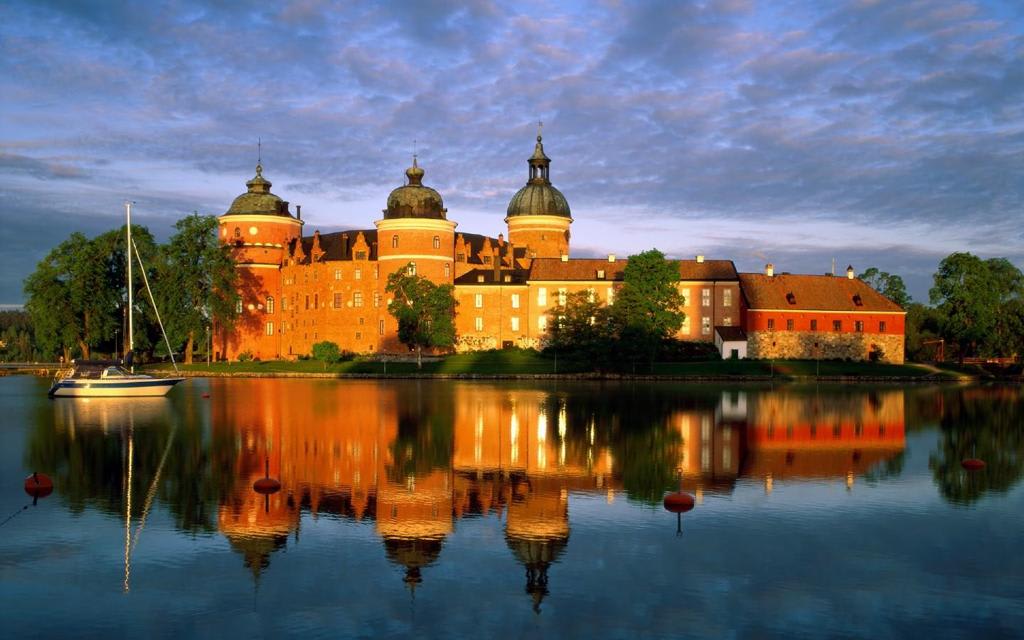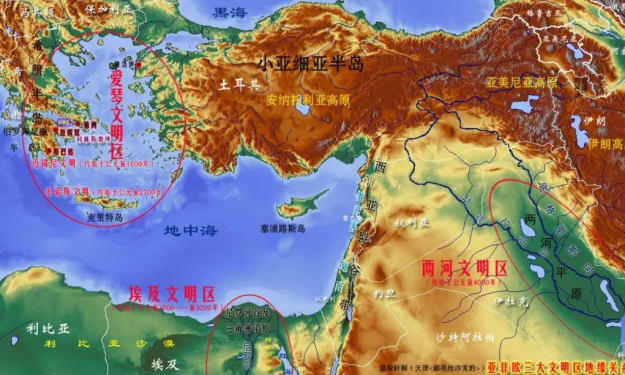European Series - Macedonia's Choice in the "Hippo War"
Macedonia's Choice in the "Hippo War"

After the Battle of Marathon, Athens, which successfully repelled the Persian army, undoubtedly injected a shot of stimulant into the entire Greek region, and its prestige has naturally been greatly improved. Speaking of which, the Spartans had a chance to share the victory. Because before the war, the Athenians had turned to this old enemy for help. Seeing that they had also humiliated the Persians, the Spartans agreed to Athens' request (with 2000 reinforcements). However, the Spartans will celebrate their most important festival "Kania" every year in September. During the nine days of celebrating the festival, in order to show respect for the gods, no war can be waged. And the Persian attack, "just" in September.
In fact, everything can be changed, and any religious taboos are not absolute. As we will see later, the Spartans also broke this taboo when the entire Greek region faced life and death. From a political point of view, the reason why the Spartans did not respond quickly was that the war would not end so soon (there was no need to spoil the holiday spirit for this). After all, if Athens defended itself from the city, how could it be able to hold on for a few months under normal circumstances; on the other hand, since Athens is in the front line, even if it is purely for military purposes, letting them consume the Persian army can increase their own strength of victory. However, in view of the heroic performance of the Spartans in Wenquan Pass, later generations of literary and art workers are more willing to believe that the Spartans only came late for religious reasons.
However, the Greeks chose to fight with Persia in the Marathon Plain and finally won the victory, which was beyond the Spartans' expectations. Although the Persians were defeated and the Spartans were also beneficiaries, as the first military power in Greece, Sparta would naturally feel a little uncomfortable seeing its rivals become famous in the first battle. They need to be amazing in the next war if they are to prove themselves.
In 480 BC, when Xerxes led an all-out army across the Dardanelles, the Spartans finally had a chance to prove themselves. In fact, the Spartans had no choice this time either. Because before the expedition, the third monarch of the Persian Empire, like his predecessor (Darius), also sent messengers from the Greek city-states to ask for "water and soil". And this time, Athens and Sparta had no chance to humiliate the Persian messenger again.
The Persians repeated their old tricks, not only to make it clear that they would not let Athens and Sparta go, but also to verify whether the Greek city-states that surrendered ten years ago could be counted on. However, the Greeks who had been given a tonic in the Battle of Marathon were obviously not as afraid of the Persians as they were last time. When the Persian army advanced to Macedonia (the messenger returned), Xerxes found that only some of the city-states expressed their "loyalty"
In fact, even those city-states that expressed their willingness to surrender, the attitude itself was a wall. At heart, after enjoying the Greek-style open political structure, no one really wants to be placed under the rule of a centralized empire. Even the Persians are the most trusted Macedonians in the Greek peninsula. Soon everyone will see how the Macedonians have both sides.
Speaking of which, the Persians still favor the Macedonians more than the scattered Thrace. Because the Macedonians, who are closer to Greek civilization, have entered the kingdom stage where power tends to be concentrated. As we said earlier, it is far easier to control a country with a pyramidal power structure than it is in a region with a tribal system. As for the city-state political system that the Greeks considered themselves "democratic", in the eyes of a totalitarian state, it was just an upgraded version of the tribal system.
When Darius sent messengers to ask for water and soil from the Greek peninsula, the Macedonians had already shown their attitude in a timely manner. Based on Macedonia's location, and more prominently continental, the Persian Empire also wanted Macedonia to play an active role in the conquest of Greece. If the Persian Empire eventually ruled the Greek peninsula, Macedonia actually has a good chance of becoming the Empire's agent in Europe. After all, the center of the empire is far away in Asia, and the Persians need to constrain those Greek city-states that seem to be scattered in a country that has a similar geopolitical structure and can exert influence over the Greek region.
If Macedonia is still in the "barbarian" stage at this time, they should be very interested in accepting this proxy position. At least the arrival of the Persians will give them the opportunity to plunder the wealthy Greek regions (Thracians). Just interested in it, they would even rob the Persians of their baggage). However, based on the relationship of geographical location, Macedonia is already on the edge of civilization. To put it simply, the Macedonians, who have been influenced by Greek civilization for a long time, very much hope to erase the geographical division of Mount Olympus and make themselves part of Greece.
Without the invasion of the Persian Empire, the Hellenistic process of Macedonia would have continued. And now Macedonia has to face the reality (Persia is too strong to compete) and help Persia destroy the Greek civilization that it has admired for a long time. It's just that whether it's based on ambivalence or the idea of betting on both sides (after all, Athens defeated Persia in the marathon), Macedonia will secretly help the Greeks make ideas while becoming a springboard for Persia to go south to Greece.
During the Bosnian War (480 BC), the Macedonians helped the Greeks make two major decisions. The first was to get the Greeks to give up the idea of stopping the Persian army under Mount Olympus. In the previous content, we have interpreted the geographical relationship between Macedonia and southern Greece. The dividing line between the two is the mountain range where the Pindus Mountains extend eastward to Mount Olympus. From the point of view of the water system, the "Alyakmon River" basin to the north of Mount Olympus is located in the southernmost part of Macedonia; the northernmost part of Greece".
picture
In the geopolitical structure of Greece, the Anios river basin is called the "Thessaly" region. The middle and lower reaches of the Anios River is also the largest lowland plate in Greece. Since the coastline of the Thessaly area is also covered by a north-south mountain, the entire plate presents a standard basin structure, which is the "Thessaly Basin" we mentioned earlier. Obviously, in such a basin structure, the river water flowing from the surrounding mountains will converge in the middle in the shape of leaf veins, and eventually merge into a large river, breaking through the surrounding mountains and flowing into the sea.
The valley that eventually provides access to the sea for the Anios River is located just south of Mount Olympus. Opposite this "Sacred Mountain" is a slightly smaller mountain - Mount Osa. The valley between the two mountains is called the Vale of Tempe by the Greeks. Obviously, the natural passage from Macedonia to Thessaly is to travel south along the coastline to the mouth of the Anios River, and then cross the Tenby Valley into the hinterland of the basin.
For the defenders, the terrain of the Tenby Valley, where two mountains and one valley are sandwiched, is very advantageous. In addition, Mount Olympus is equivalent to the northern starting point of the Greek region. At the beginning of the Greek coalition, it was natural to choose this as the front line to stop the Persian invasion. To this end, Athens and Sparta specially shipped 10,000 hoplites from the Peloponnese to the Tenby Valley to help the Greek city-states in the Thessaly region resist the attack of the Persian army. However, this Greek legion, which was ready to fight, re-boarded and returned to the Peloponnese (specifically, the Isthmus of Corinth) a few days later. This is because the Macedonian king, who was in the mentality of riding the wall, told the Greeks that the path from the Macedonian region to the south of the Thessaly Basin was not the only one in the Tenby Valley.
According to our past experience, this path should be formed by connecting a tributary on the south bank of the Alikmon River with a tributary on the north bank of the Anios River. In theory, there can be multiple of these paths. It's just that if no one uses it, river valley passages and mountain passes are generally covered with earth, rocks or vegetation, which is embarrassing and useful. As for the new passage that the Macedonians are referring to, it doesn't really matter where it is. It is important that the Macedonians know which mountain pass is accessible.
The Macedonian's "information" undoubtedly shook the confidence of the Greeks in the Tenby Valley. However, this is not actually the main reason why they abandoned the Tenby Valley. Because technically, the Greek coalition could also arm on the trails mentioned by the Macedonians. What's more, since the Macedonians took the initiative to prompt, it is also possible to do the work so that they do not inform the Persians.
The decisive factor that really made the Greeks shrink their defenses was the terrain of the Thessaly Basin. First of all, as the most complete and largest alluvial basin in Greece, the open terrain of Thessaly is not conducive to the deployment of Greek infantry with a small number of people. That is, once the Persians broke through the defense line established by the Greeks at Taniguchi. The advantages of the Persians in numbers, maneuverability, and long-range attack capabilities will completely dominate the open terrain of the Thessaly Basin. The retreating Greek infantry did not even have a chance to retreat into the mountains to resist step by step before being chased by the Persian cavalry.
Secondly, in view of the topographic structure of the mountains surrounding the Thessaly area, the Persians did not even need to use troops to conquer the Thessaly area. Terrain structures such as Tenby Valley can certainly enhance military defense, but compared with the delta estuary that is more open and flowing downstream, the risk of being damaged by water is also infinitely increased. The Persians only need to block the only exit of the Anios River with earth and stone (for the large Persian army, it is too easy to do this), and it is enough to allow the river, which is in the flood season, to flow in the river. the lower part of the Thessaly Basin.
In this case, once the Persian army took control of the Tenby Valley, the Thessaly surrendered automatically without waiting for them to make a move. In fact, when Xerxes sent an envoy to the Greek city-state to ask for water and soil again, the city-states in the Thessaly region, which were well aware of their geographical disadvantage, had already made a gesture of obeying Persia. However, no one is really willing to give up their independent status and be subject to a huge empire. They asked those compatriots in the south who were preparing to rebel against Persia to send troops to defend the Tenby Valley, in fact, they were doing two-handed preparations. If the marathon miracle reappears, he can naturally continue to be a Greek; if he fails, the responsibility can also be pushed to Athens and Spartans. The Thessaly people are almost certain that they will welcome the "Master Wang" into the city as soon as possible.
No matter how good the Thessaly's abacus was, the retreat of the Greek coalition forces left them with no choice but to submit to Persia. That is to say, before the arrival of the Persian army, their targets of conquest were only the Attica peninsula where Athens was located, and the "Peloponnese peninsula" where Sparta was located. As for the Greek coalition after the abandonment of Thessaly, where to set up the new line of defense, we will interpret it in the next section.






Comments
There are no comments for this story
Be the first to respond and start the conversation.